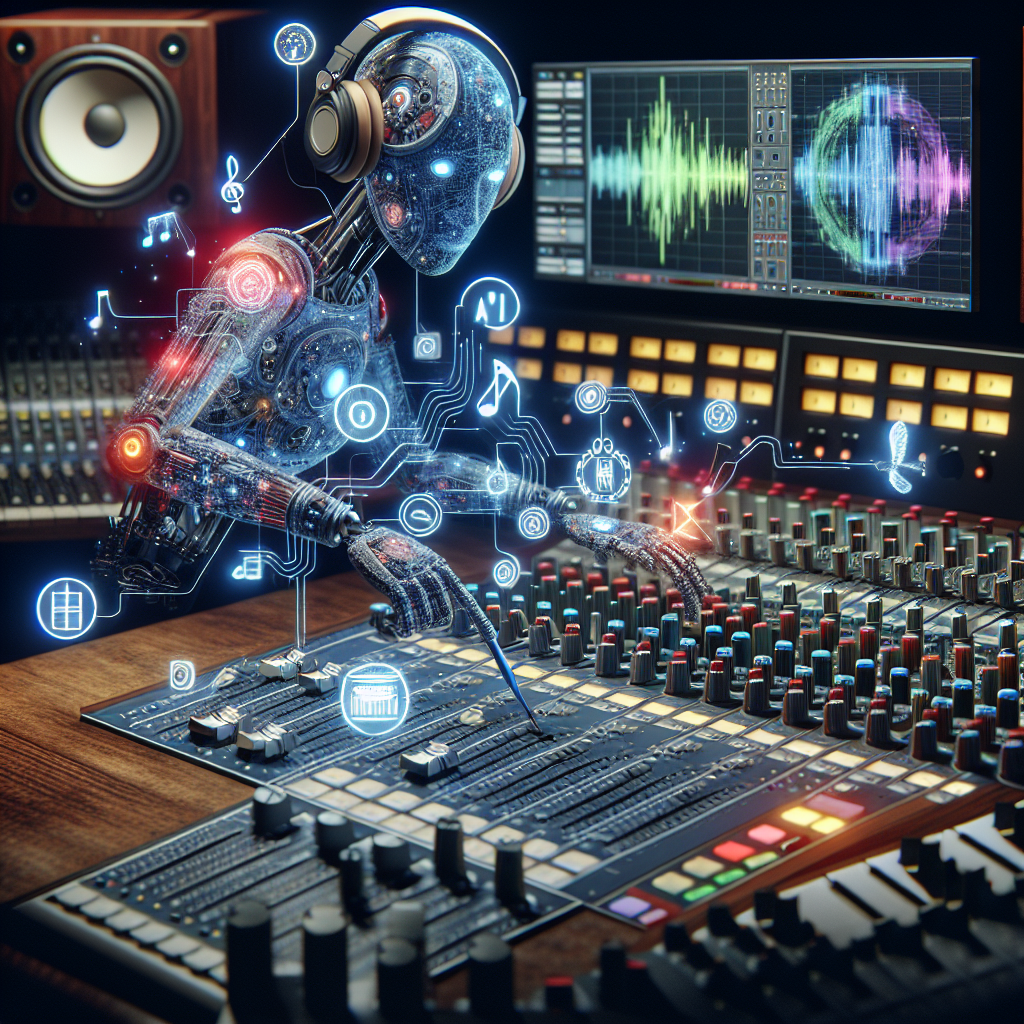The Impact of AI on Music Production Techniques
Artificial intelligence (AI) has made significant strides in recent years, impacting various industries, including music production. AI has the potential to revolutionize the way music is created, produced, and distributed, offering new tools and techniques that can enhance the creative process for artists and producers. In this article, we will explore the impact of AI on music production techniques and how it is changing the landscape of the music industry.
AI in Music Composition
One of the most significant ways AI is impacting music production is in the realm of composition. AI algorithms have been developed that can analyze vast amounts of musical data and create original compositions based on patterns and trends in the data. This has opened up new possibilities for musicians and composers, allowing them to explore new musical ideas and styles that they may not have considered before.
AI-generated music has been used in various settings, from film soundtracks to advertising jingles. Companies like Jukedeck and Amper Music have developed AI platforms that can create custom music tracks in a matter of minutes, saving time and money for content creators. These platforms allow users to input parameters such as mood, tempo, and instrumentation, and the AI algorithm generates a unique music track that fits the criteria.
AI in Music Production
In addition to composition, AI is also being used in music production to streamline the process of mixing and mastering. AI algorithms can analyze audio tracks and make adjustments to levels, EQ, and dynamics to enhance the overall sound quality of a recording. This can save producers and engineers hours of time spent tweaking settings and fine-tuning a mix.
Companies like Landr and iZotope have developed AI-driven software tools that can automatically master audio tracks, providing a quick and efficient way to achieve professional-sounding results. These tools use machine learning algorithms to analyze the audio and apply processing techniques that are tailored to the specific characteristics of the track.
AI in Music Recommendation
Another area where AI is making an impact on music production is in the realm of music recommendation and discovery. Streaming platforms like Spotify and Apple Music use AI algorithms to analyze user listening habits and preferences and recommend new music based on those insights. This has the potential to expose artists to a wider audience and help listeners discover new music that they may not have come across otherwise.
AI algorithms can also be used to analyze music trends and predict which songs or genres are likely to become popular in the future. This can help artists and producers make informed decisions about their music production strategies and target their efforts towards genres or styles that are gaining traction in the market.
FAQs
Q: How is AI impacting creativity in music production?
A: AI is not replacing human creativity in music production but rather augmenting it. AI tools can help musicians and producers explore new ideas, styles, and techniques that they may not have considered before. By analyzing vast amounts of musical data, AI algorithms can suggest new chord progressions, melodies, and rhythms that can inspire artists to create unique and innovative music.
Q: Are AI-generated music tracks as good as those composed by humans?
A: The quality of AI-generated music tracks can vary depending on the algorithm and the parameters used to create the composition. While AI can create music that is technically proficient and fits certain criteria, it may lack the emotional depth and nuance that human composers bring to their work. However, AI-generated music can still be a valuable tool for content creators looking for custom music tracks that meet specific requirements.
Q: How can musicians and producers benefit from using AI in their music production process?
A: AI tools can help musicians and producers streamline their workflow, save time, and achieve professional-sounding results more efficiently. By automating tasks like mixing and mastering, AI can free up time for artists to focus on the creative aspects of music production. AI can also help musicians discover new music trends, styles, and genres that can inspire their own work and expand their creative horizons.
In conclusion, AI is having a significant impact on music production techniques, offering new tools and techniques that can enhance the creative process for artists and producers. From composition to production to recommendation, AI is changing the way music is created, produced, and distributed, opening up new possibilities for musicians and listeners alike. As AI technology continues to evolve, we can expect to see even more innovations in music production that will shape the future of the music industry.

